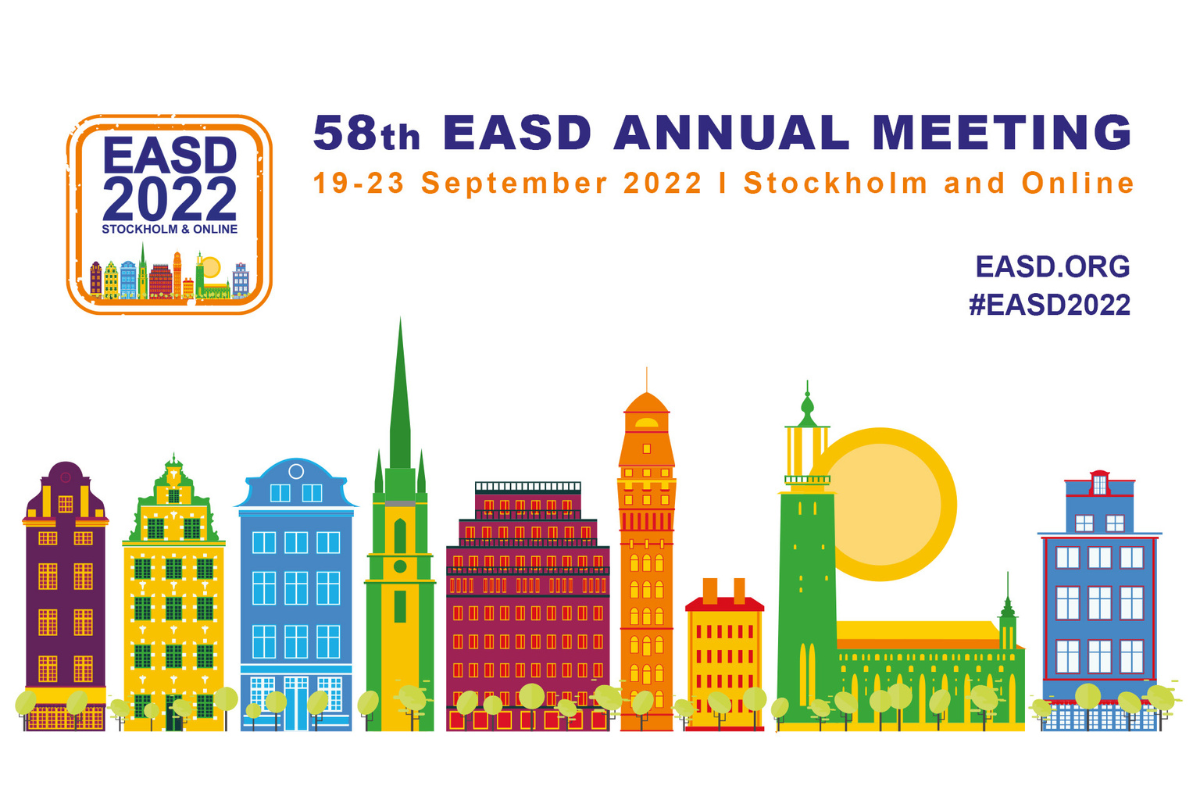
Leading researchers from around the world have gathered for the annual meeting of the European Association for the Study of Diabetes (EASD). At this year’s meeting, which will take place from September 20-23 in Stockholm, Sweden, and virtually, more than 30 studies will be presented by Breakthrough T1D researchers, funded now or in the past, working to find cures for type 1 diabetes (T1D) and improve the lives of those living with the disease today. Let’s have a look:
- First of all, congratulations to Breakthrough T1D-funded Maike Sander, M.D., who will receive the 16th Albert Renold Prize, given for a member’s outstanding achievement in research on the islets and their relationship to diabetes, and Anette-Gabriele Ziegler, M.D., who will receive the EASD-Novo Nordisk Foundation Diabetes Prize for Excellence, which awards an internationally recognized researchers who has contributed significantly to advances in the understanding, prevention, and treatment of diabetes and its complications. (In addition, Dr. Ziegler will also present on new avenues in the prevention of T1D, in the EASD/Breakthrough T1D Symposium, on which Breakthrough T1D Chief Scientific Officer, Sanjoy Dutta, Ph.D., is chair.)
Since 2007, when the Albert Renold Prize was given out annually, a total of 13 investigators have received Breakthrough T1D funding prior to winning the prize, including 5 Breakthrough T1D early-career scientist grants. (Dr. Sander was a Breakthrough T1D postdoctoral fellow from 1997-1999 and has received many more awards since.)
- Two former Breakthrough T1D-funded early-career scientist grantees— Luiza Caramori, M.D., Ph.D., at the University of Minnesota, and Monika Niewczas, M.D., Ph.D., from the Joslin Diabetes Center—will present on diabetic kidney disease; the former will take on the role of kidney biopsies and what we can learn from them and the latter will present on possible indicators for the disease.
- The success of islet transplantation depends on the number of surviving and functioning islet cells, which have been difficult to estimate using current technologies. Wilson Wong, Ph.D., however, a postdoctoral fellow in the laboratory of Breakthrough T1D-funded Anandwardhan Hardikar, Ph.D., will present on microRNAs—small fragments of RNA that play key roles in regulating gene expression—as potential biomarkers of beta cell function in islet transplant recipients. Also on the abstract are his mentor, Breakthrough T1D-funded postdoctoral fellow Mugdha Joglekar, Ph.D. (also in the Hardikar lab), and Breakthrough T1D-funded M. Shapiro, M.D., Ph.D., and Patrick MacDonald, Ph.D., at The University of Alberta, Canada.
- Presenting on adjunct therapies and how much people with T1D can benefit are Parth Narendran, FRCP, a former Breakthrough T1D postdoctoral fellow and Breakthrough T1D grantee, and Husam Ghanim, Ph.D., a Breakthrough T1D-funded co-investigator on a clinical trial testing a triple therapy—insulin, an SGLT inhibitor, and a GLP-1 receptor—in adults.
Keep up with the latest updates and exciting news from the EASD Conference on Twitter at @JDRF.